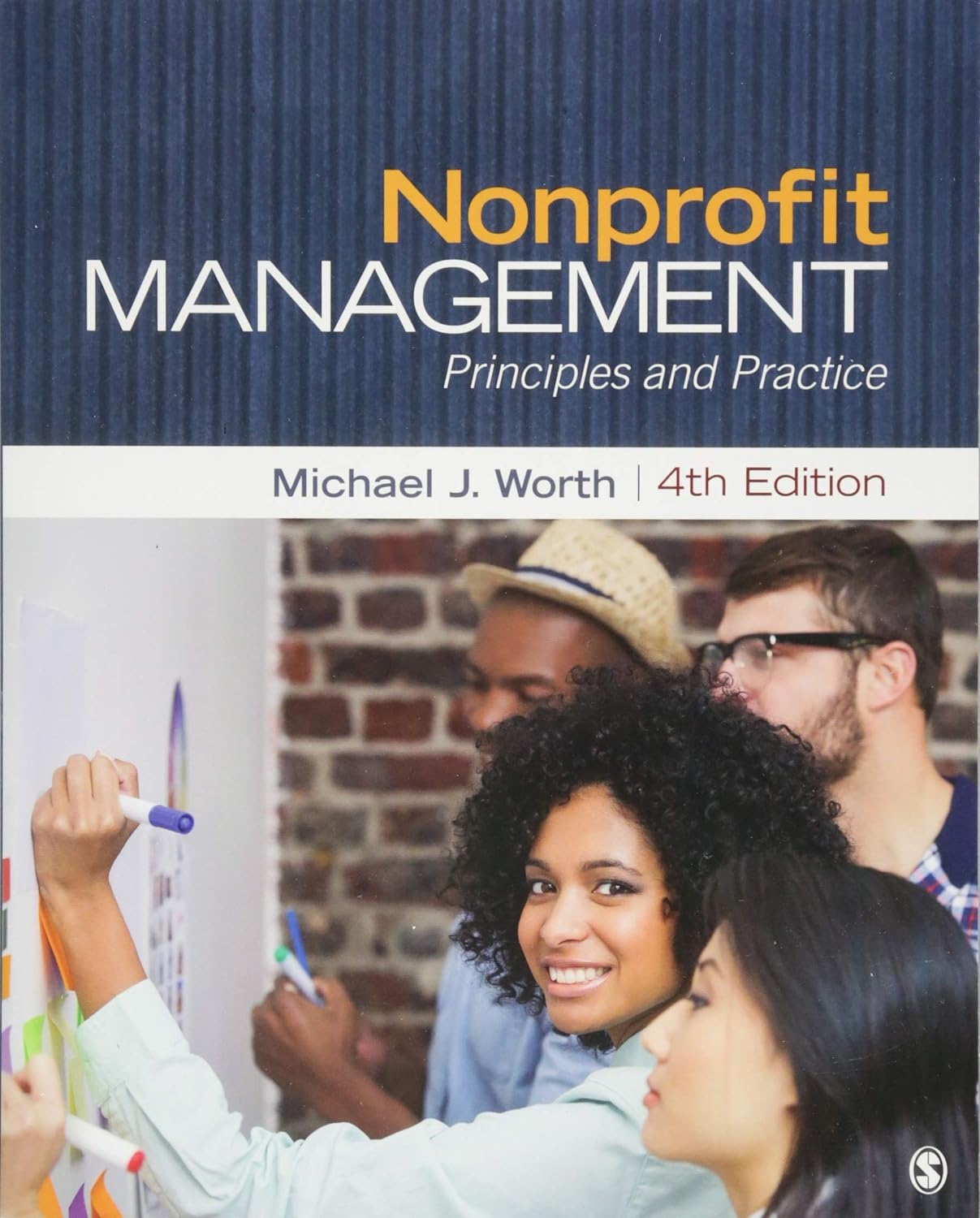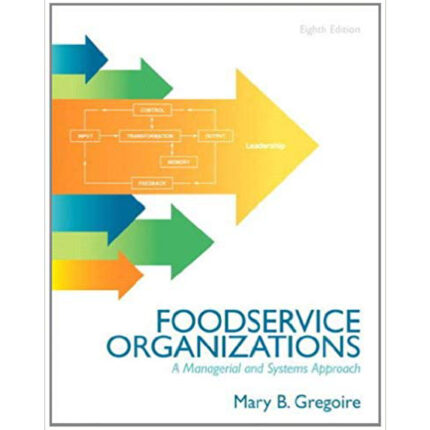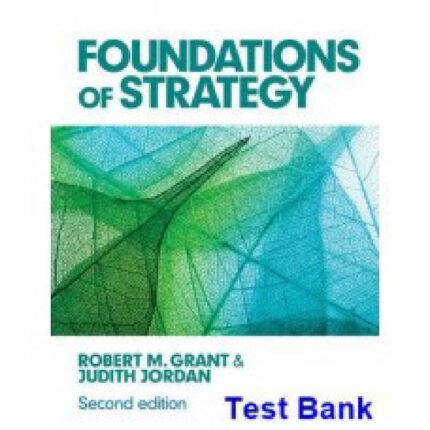Chapter 11 – Advocacy and Lobbying
TEST BANK
- have been at the forefront of every important social change in the United States from the beginning of the nation.
- Women
- Students
- Politicians
*d. Nonprofits
Answer Location: Chapter Introduction
Learning Objective: 11-1
Cognitive Domain: Knowledge
Question Type: MC
- In this stage of the life cycle of a social change issue, analysts and advocates look at the data and consider how the problem might be addressed.
- Stage 2
*b. Stage 4
- Stage 6
- Stage 8
Answer Location: Chapter Introduction
Learning Objective: 11-1
Cognitive Domain: Knowledge
Question Type: MC
- Although research has indicated that nonprofits actually lobbying as government becomes a more predominant source of their revenue, concern about alienating government foundation funders is a barrier for some.
*a. increase
- decrease
- criticize
- become more ambivalent about
Answer Location: Chapter Introduction
Learning Objective: 11-1
Cognitive Domain: Knowledge
Question Type: MC
- This includes action taken in support of a cause or an idea, and it may include, for example, providing education, distributing information, or holding events to dramatize an issue or the effects of a problem on people or a community.
- Lobbying
*b. Advocacy
- Political campaign activity
- Picketing
Answer Location: Chapter Summary
Learning Objective: 11-2
Cognitive Domain: Knowledge
Question Type: MC
- This is an action taken to support or oppose specific legislation at the national, state, or local level, and it could include, for example, contacting a member of Congress, a state legislator, or a city councilperson to request his or her sponsorship or vote in favor of or against a specific bill.
- Political campaign activity
- Advocacy
*c. Lobbying
- Cold-calling
Answer Location: Basic Distinctions
Learning Objective: 11-2
Cognitive Domain: Knowledge
Question Type: MC
- includes any communication the organization has “with legislators or government officials who participate in the formulation of legislation or with its own members with regard to specific legislation and that expresses a view on it.”
*a. Direct lobbying
- Indirect lobbying
- Grassroots lobbying
- Corporate lobbying
Answer Location: Option II: 501(b) Expenditure Test
Learning Objective: 11-2
Cognitive Domain: Knowledge
Question Type: MC
- If an organization takes out an ad in the newspaper or hands out flyers on the corner urging members of the general public to do the same, that is:
- direct lobbying.
- contrary to the substantial part test.
- advertising.
*d. grassroots lobbying.
Answer Location: Option II: 501(h) Expenditure Test
Learning Objective: 11-2
Cognitive Domain: Comprehension
Question Type: MC
- A nonprofit organization may spend only one fourth as much on grassroots lobbying as on direct lobbying, and there is an overall cap of:
- $500,000.
*b. $1 million.
- $1.5 million.
- $2 million.
Answer Location: Option II: 501(h) Expenditure Test
Learning Objective: 11-3
Cognitive Domain: Knowledge
Question Type: MC
- Charitable nonprofits must report their lobbying expenses on:
- their website.
- their statement of functional expenses.
*c. Form 990.
- Form 5768.
Answer Location: Option II: 501(h) Expenditure Test
Learning Objective: 11-3
Cognitive Domain: Knowledge
Question Type: MC
- Organizations that employ professional lobbyists and spend more than $12,500 on lobbying at the federal level must meet the requirements of:
- the Civil Rights Act.
- Public Law 94–455.
- state lobbying laws.
*d. the Lobbying Disclosure Act.
Answer Location: Option II: 501(h) Expenditure Test
Learning Objective: 11-3
Cognitive Domain: Knowledge
Question Type: MC
- may not endorse or oppose legislation in communications with legislators or the general public if the communication includes a call to action.
- Public charities
*b. Private foundations
- Community foundations
- Corporations
Answer Location: Option II: 501(h) Expenditure Test
Learning Objective: 11-3
Cognitive Domain: Knowledge
Question Type: MC
- In January 2007, the 100th Congress amended House Rule 25 (called the ), placing stricter limits on what gifts or privately supported travel members of the House of Representatives can accept from lobbyists.
*a. gift rule
- lobbying rule
- Lobby Law of 2007
- Lobbying Disclosure Act
Answer Location: Option II: 501(h) Expenditure Test
Learning Objective: 11-3
Cognitive Domain: Knowledge
Question Type: MC
- In June 2007, the IRS released a to clarify the criteria by which it would determine what is and is not illegal campaign involvement; this included 21 hypothetical examples of activity and a discussion of why each does or does not constitute a violation of the law.
- Lobby law
- gift rule
- new revenue form
*d. Revenue ruling
Answer Location: Political Campaign Activity
Learning Objective: 11-3
Cognitive Domain: Knowledge
Question Type: MC
- To lobby effectively, a nonprofit organization needs to understand how is(are) considered at the local, state, or national level—wherever its lobbying efforts will be focused.
- lobby rules
*b. legislation
- gift rules
- advocacy
Answer Location: Implementing an Advocacy Program
Learning Objective: 11-4
Cognitive Domain: Knowledge
Question Type: MC
- There are restrictions on the use of government or foundation funds used by nonprofits for the purpose of lobbying, but from gifts, grants, or earned income may be used to fund a lobbying effort.
- dedicated revenues
- restricted revenues
*c. unrestricted revenues
- operating revenues
Answer Location: Implementing an Advocacy Program
Learning Objective: 11-4
Cognitive Domain: Knowledge
Question Type: MC













Reviews
There are no reviews yet.